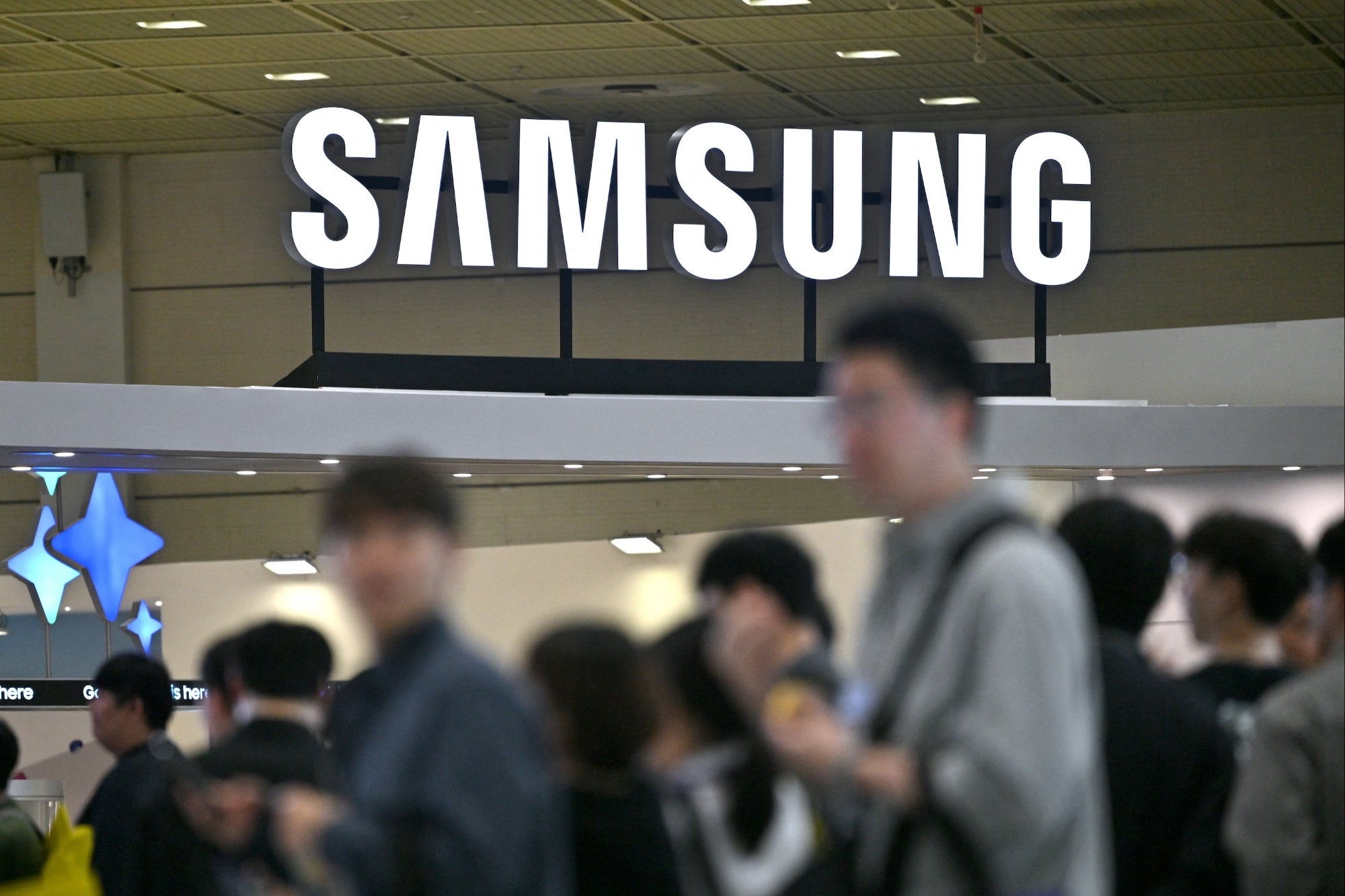AFFILIATE MARKETING
Affiliate Marketing vs. COVID-19: Industry Movement and Expert Advice on Surviving the Impact

Just like every other sector, COVID-19 has impacted affiliate marketing in several ways, as well. However, the pandemic influence was both positive and negative. Though many affiliate marketers revamped their tactics from scratch, others did not feel a big difference. It is because remote work was already in their practice.
Let us understand the detailed market condition for affiliate marketing after the pandemic:
Current Market Condition
The contagion has left a deep impact on two factors, niche selection and ad revenue. Many marketers shifted their niches for increased profitability. Areas like health care, home hygiene, entertainment, apps for small businesses, and skills were high in demand. On the flip side, home improvement, luxuries, and real estate lagged severely.
These ups and downs of the corporate sector have massively changed consumer behavior. 64% of the blog owners reported severe traffic changes on the blogs during a pandemic, directly decreasing ad revenue.
Case Study
Z-Skin Cosmetics reported a huge hike in sales. The company’s CEO gave this credit to the hand-sanitizing product line, which is high in demand. The sales for hand sanitizers exploded, and affiliate programs became big support in this regard.
In the same way, the owner of My Supplement Store explained the impact of buying behavior. The company faced a great decline in sports supplements, whereas immunity boosters had record-breaking sales since the pandemic started.
Online learning tools and memberships for online classes are expected to stay high in demand because the virus is back in action. Markets were beginning to open, but they have shut down again. People are confined to their homes once more. Thus, remote learning tools are expected to show an increase in sales. Since remote work is a new normal, video conferencing software like Zoom, Cisco WebEx, and Microsoft are in full swing.
These changes show us a clear picture of the current market. Many affiliate marketers have already changed their niches. If the pandemic continues, a huge chunk of affiliate marketers will shift towards more profitable segments, leaving their present ones.
No matter you change your niche or not, one thing is clear, remote working practice will continue for a long. Therefore, you should have a good grip on tools essential for working remotely.
Let us have a look into these tools:
Remote Working Tools
Affiliate marketing experts recommend using various tools for automating the repetitive tasks in remote working, boosting productivity, and reforming the collaborative remote work. Some of these tools are mentioned below:
1. SEMrush
This renowned SEO tool can be used for performing a blog SEO audit, finding great keywords, and looking at back linking opportunities.
2. Slack
Slack is high in demand these days. This is a collaborative tool that helps in sharing tasks, communicating, and organizing shared projects.
3. Get Response
It is used for email marketing. You can easily create your list and develop a strong customer base.
4. Yoast SEO
The tool gets integrated with Word Press. You can use it for Meta tags and optimizing the content.
5. Elementor
This works as a Word Press plugin and can be used with various layouts.
6. BuzzSumo
If you are looking for content ideas and particularly interested in knowing the highly searched topics, go for Buzz Sumo. It also assists in finding influencers and give alerts based on brand name, domains, links, and keywords.
7. KWFinder
If you are in search of some best long-tail keywords, use this tool. You will easily find the ones with low competition and high searches.
8. Ahrefs
You can search keywords, find backlinks, perform a website audit, and dig into competitors’ strategies with Ahrefs.
Thirsty Affiliates
If you need to optimize your Word Press website with affiliate marketing, go for Thirsty Affiliates. It is a hub of tools that helps you in affiliate marketing.
Now, let us see how the industry experts are playing their affiliate marketing game and dealing with the disruptive situation.
Experts Advice on Affiliate Marketing
1. Shawna Newman at Skipblast
Shawna is an affiliate marketer and has been working from home for the last 10 years. Therefore, when others shifted towards remote working, she felt no change. However, she is focusing on new blogs these days, while others are kept on hold. In total, Shawna has 10 blogs, and only 4 of them are high in demand these days. She is focusing on these 4 but happy with the increasing sales on these 4 blogs.
Shawna recommends Ahrefs and Buzz Sumo for affiliate marketing. She feels creating a new site for high demanding areas is a waste of time, money, and effort. Every site needs time to develop and gain traffic. By the time the site is good to get huge traffic, the market condition will change. She further suggests investing in problem-solving areas as they reap great benefits in the long run.
2. Lior Amar at Journeyborn
Lior Amar thinks about the current situation as an opportunity for newbies. This is the best time to experiment and perform detailed researches in various niches, he suggested. Affiliate marketing is all about research, and we can do maximum research at this time when we have no other commitments.
The only hurdle is the distractions that we routinely get while working from home. However, if we follow a strong morning routine, we will be able to combat every distraction and stick to our mission, he added. According to Lior, Ahrefs is the best tool for finding keywords and performing an audit.
As per his suggestion, we should only work for niches in which we have a deep interest. Besides this, working on products that we have personally used is the best idea. Though some segments are at peak sales these days, we cannot jump into them directly until we have interest and detailed research about the topics.
Wrapping It Up
In short, COVID-19 has changed the entire map of affiliate marketing. Changes in consumer behavior, interest in a few segments, and global financial crises. Segments like health, hygiene, and online learning tools are in full swing. However, other areas like luxuries, real estate, and home improvement are facing a difficult time. Experts recommend focusing on the high-demand areas if you already have a site on it. In another case, try utilizing this time for researching future segments.
Author:
Nouman provides ghostwriting and copywriting services. His educational background in the technical field and business studies helps him in tackling topics ranging from career and business productivity to web development and digital marketing. He occasionally writes articles for Apcelero.
AFFILIATE MARKETING
AI Will Transform the Workplace. Here’s How HR Can Prepare for It.

Opinions expressed by Entrepreneur contributors are their own.
Our workplaces are about to undergo an unprecedented level of transformation, and HR will take center stage. Artificial intelligence will dramatically reshape HR in a way that goes beyond recruiting, hiring and talent management. Leadership teams at all levels need to embrace this change to transform and lead their organizations forward.
It’s the people, and not the technology, that makes AI initiatives a success. Intrapreneurs, in particular, are the driving force behind it. As I shared in Fearless Innovation, I noticed this when I was working on the innovation agenda for the Great Places to Work study — the most innovative companies were those that had a leadership team that was embracing intrapreneurship and were open to change.
HR is the beating heart of any organization, and as such, it needs to take center stage in both adopting and leading ethical and innovative AI transformation across the organization.
Related: How Artificial Intelligence Is Reinventing Human Resources
4 tectonic shifts AI will drive in HR
1. A new wave of massive reskilling
As AI becomes more prominent across business functions, the need for new skills will only grow. Forty percent of enterprise leaders believe that their workforce would need to reskill as a result of AI and machine learning. In fact, research shows almost a third of all hours worked in the U.S. could be automated by 2030.
All of us need to reskill to some extent to be relevant in the AI era. Not only would people need to re-train, but generative AI is introducing a whole host of professions that have been non-existent until recently, from AI ethicists to human-AI interaction designers. Some of these roles might sound futuristic, yet they are becoming increasingly relevant as technology advances.
2. The great restructure
As automation takes center stage across more business functions, there will be the inevitable need for organizations to restructure and rethink how they work. This transition will not only involve the integration of new technologies but also introduce a shift in the workforce dynamics. Intrapreneurs will need to identify gaps both in skills and operational processes and forge brand-new roles for themselves and those they manage. HR must play a key role in enabling a smooth and easy transition in this regard. The transition will not be smooth or easy, and it’s only HR that has the capability to make it impactful.
3. Arrival of “digital humans”
“Digital human” may sound like an oxymoron, but that’s the term that’s starting to appear in business and operational plans. More roles, regardless of industry, are becoming digitally enhanced where some form of AI assistance is embedded in their everyday work. A real-life example is the introduction of the digital nurse — AI-powered healthcare agents which have already been proven to outperform human nurses in certain tasks.
Imagine the impact these digital roles will have on the workforce the more sophisticated and prevalent they become. Eventually, HR will need to create policies and systems in place that account for this new type of “staff augmentation.”
4. Regulating the robot
The threat of AI bias and misuse is serious. Not only can the technology put many jobs at peril, but potential improper implementation can expose organizations to serious liability and negatively affect the workforce. From avoiding bias to inclusivity, HR teams play a critical role in the ethical deployment and management of AI technologies.
HR professionals will be tasked with navigating the delicate balance between leveraging AI for efficiency and ensuring that its application upholds fairness, privacy and non-discrimination.
What HR intrapreneurs must do to embrace AI the right way
The future of work is being shaped by AI adoption, and its success hinges on the right approach from the outset. My experience shows that for successful organizations, one universal trait stands out: the presence of change agents. Every organization, regardless of size, benefits from intrapreneurs who are open to change and committed to spearheading transformation efforts. These intrapreneurs are pivotal in driving the future of work, as they help orchestrate the integration of new technologies into their business models.
HR and talent leaders should harness this dynamic, encouraging a symbiotic relationship with intrapreneurs to develop customized solutions for AI adoption, ensuring that they are not just keeping pace with technological advances but are actively shaping their trajectory.
Securing a seat at the table:
HR should take a proactive stance in the adoption of AI, even if it is still in its early stages within your organization. By securing a position at the forefront of the AI initiative, HR can and should facilitate and guide the entire organization in embracing this significant change.
As AI has the potential to impact every facet of the organization, it is imperative for HR to not only understand and advocate for this technology but also lead its integration across all departments. HR should encourage and support intrapreneurs and all employees to leverage AI in their daily tasks, demonstrating its value not just for operational efficiency but for personal and professional growth as well.
Master the technology:
To effectively navigate and regulate AI, HR must first understand it thoroughly. Grasping the full potential of this technology is crucial for reaping its extensive benefits. HR plays a vital role in identifying the necessary tools and skills that employees must acquire and then integrating these learnings into daily work practices.
Before implementing AI more broadly, HR should initiate comprehensive training programs that not only educate but also reassure employees about AI’s role in the future of the business. By leading these educational initiatives, HR can shape the structure and effectiveness of these programs, ensuring they meet the needs of the organization and its workforce.
Related: 3 Ways to Prepare Your Business For an AI Future
Looking ahead
Generative AI has the transformative potential to redefine the business landscape, but realizing this vast potential hinges on more than just the adoption of technology. It critically depends on the talent within the workforce, driven by HR and bold intrapreneurs. These visionary leaders don’t just implement new tools; they exemplify their use, demonstrating the profound impact of AI across every level of the organization.
HR plays a pivotal role in fostering this environment, enabling intrapreneurs to guide and inspire every individual they touch. Together, they turn each employee into a catalyst for change, igniting a widespread passion for innovation that deeply resonates and sustains long-term success.
AFFILIATE MARKETING
Samsung: 6-Day Workweek For Execs, Company in Emergency Mode

Four-day workweeks might have all the buzz, but one major tech company is going in the opposite direction.
Samsung is implementing a six-day workweek for all executives after some of the firm’s core businesses delivered lower-than-expected financial results last year.
A Samsung Group executive told a Korean news outlet that “considering that performance of our major units, including Samsung Electronics Co., fell short of expectations in 2023, we are introducing the six-day work week for executives to inject a sense of crisis and make all-out efforts to overcome this crisis.”
Lower performance combined with other economic uncertainties like high borrowing costs have pushed the South Korean company to enter “emergency mode,” per The Korea Economic Daily.
Related: Apple Is No Longer the Top Phonemaker in the World as AI Pressure and Competition Intensifies
Executives at all Samsung Group divisions will be affected, including those in sales and manufacturing, according to the report.
Samsung had its worst financial year in over a decade in 2023, with the Wall Street Journal reporting that net profit fell 73% in Q4. It also lost its top spot on the global smartphone market to Apple in the same quarter, though it reclaimed it this year.
Though employees below the executive level aren’t yet mandated to clock in on weekends, some might follow the unwritten example of their bosses. After all, The Korea Economic Daily reports that executives across some Samsung divisions have been voluntarily working six days a week since January, before the company decided to implement the six-day workweek policy.
Entrepreneur has reached out to Samsung’s U.S. newsroom to ask if this news includes executives situated globally, including in the U.S., or if it only affects employees in Korea. Samsung did not immediately respond.
Research on the relationship between hours worked and output shows that working more does not necessarily increase productivity.
A Stanford project, for example, found that overwork leads to decreased total output. Average productivity decreases due to stress, sleep deprivation, and other factors “to the extent that the additional hours [worked] provide no benefit (and, in fact, are detrimental),” the study said.
Related: Samsung’s Newest Galaxy Gadget Aims ‘To See How Productive You Can Be’
Longer hours can also mean long-term health effects. The World Health Organization found that working more than 55 hours a week decreases life expectancy and increases the risk of stroke by 35%.
The same 55-hour workweek leads to a 17% higher risk of heart disease, per the same study.
AFFILIATE MARKETING
John Deere Hiring CTO ‘Chief Tractor Officer,’ TikTok Creator

This article originally appeared on Business Insider.
Agriculture equipment company John Deere is on the hunt for a different kind of CTO.
The brand on Tuesday announced a two-week search to find a “Chief Tractor Officer” who would create social media content to reach younger consumers.
One winning applicant will receive up to $192,300 to traverse the country over the next several months showcasing the way John Deere products are used by workers, from Yellowstone National Park to Chicago’s Wrigley Field and beyond.
“No matter what you do — whether it’s your coffee, getting dressed in the morning, driving to work, the building you go into — it’s all been touched by a construction worker, a farmer, or a lawn care maintenance group,” Jen Hartmann, John Deere’s global director of strategic public relations, told AdAge.
To kick off the search, John Deere tapped NFL quarterback Brock Purdy (who will presumably be a bit busy this Fall to take the job himself) to star in a clip in which he attempts to set out on a road trip in an industrial tractor.
Suited up in the obligatory vest, work boots, and John Deere hat, Purdy’s progress is interrupted by teammate Colton McKivitz hopping into the cab while a string of messages floods in from other athletes and influencers expressing interest in the job.
The clip also represents the first time that the 187-year-old company has used celebrities to promote itself, Hartmann told AdAge.
According to the contest rules, entrants have until April 29 at midnight to submit a single 60-second video making their pitch for why they should be the face and voice of the company.
In addition, entrants must live in the 48 contiguous states or DC — sorry Hawaii and Alaska residents. Interestingly, any AI-generated submissions are prohibited, too.
Videos will be judged against four categories — originally, creativity, quality, and brand knowledge — after which five finalists will be chosen and notified after May 17.
-

 SEARCHENGINES6 days ago
SEARCHENGINES6 days agoGoogle Core Update Volatility, Helpful Content Update Gone, Dangerous Google Search Results & Google Ads Confusion
-

 SEO6 days ago
SEO6 days ago10 Paid Search & PPC Planning Best Practices
-

 MARKETING7 days ago
MARKETING7 days ago2 Ways to Take Back the Power in Your Business: Part 2
-

 MARKETING5 days ago
MARKETING5 days ago5 Psychological Tactics to Write Better Emails
-

 SEARCHENGINES5 days ago
SEARCHENGINES5 days agoWeekend Google Core Ranking Volatility
-

 MARKETING6 days ago
MARKETING6 days agoThe power of program management in martech
-

 SEO5 days ago
SEO5 days agoWordPress Releases A Performance Plugin For “Near-Instant Load Times”
-

 PPC7 days ago
PPC7 days agoCritical Display Error in Brand Safety Metrics On Twitter/X Corrected













